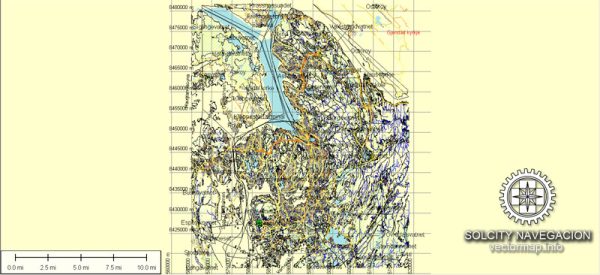Bergen is a historic and picturesque city located on the southwestern coast of Norway. It is the second-largest city in Norway and serves as the capital of the Vestland county. Bergen is renowned for its stunning natural surroundings, including the iconic fjords, mountains, and coastal landscapes, as well as its rich history and cultural heritage.
Here is a brief overview of Bergen’s history and some of its notable characteristics:
- Medieval Origins: Bergen was founded in the early 12th century, and it quickly became an important trading hub in the region. The city was established as a center for the lucrative trade in fish, especially dried cod, known as “stockfish,” and was a vital member of the Hanseatic League, a medieval trading alliance.
- Hanseatic Heritage: The Bryggen district in Bergen is a UNESCO World Heritage site and one of the most iconic parts of the city. It consists of colorful, wooden houses along the waterfront that were once used by Hanseatic merchants. Today, these buildings house museums and shops that showcase Bergen’s Hanseatic history.
- The Black Death: Bergen’s history is also marked by the devastating impact of the Black Death (bubonic plague) in the 14th century, which decimated the population. However, the city managed to recover and continued to thrive as a trading and shipping center.
- Norwegian Royalty: Bergen was the de facto capital of Norway during the late Middle Ages when the country was united with Denmark and Sweden in the Kalmar Union. The city played a significant role in Norwegian history, serving as the residence of several Norwegian kings.
- Modern Era: In the 19th century, Bergen saw economic growth and urban development, and it became a hub for the emerging Norwegian industry, particularly in shipping, fishing, and shipbuilding.
- Cultural Center: Bergen is known for its vibrant cultural scene, which includes numerous museums, art galleries, theaters, and music festivals. The city is also famous for its music traditions, including the Bergen Philharmonic Orchestra and the Bergen International Festival.
- Education and Innovation: Bergen is home to the University of Bergen, one of Norway’s leading universities, which contributes to the city’s educational and research significance. It has also played a part in the development of industries such as offshore oil and gas exploration.
- Scenic Beauty: Bergen is surrounded by some of Norway’s most spectacular natural landscapes, including the famous fjords of the western coast. Tourists often use Bergen as a starting point for exploring the breathtaking Norwegian fjords, such as the Hardangerfjord and Sognefjord.
Today, Bergen is a modern and dynamic city that beautifully combines its rich historical heritage with a thriving contemporary culture. It continues to be a significant economic and cultural hub in Norway, attracting tourists and residents with its unique charm and stunning surroundings.





 Author: Kirill Shrayber, Ph.D. FRGS
Author: Kirill Shrayber, Ph.D. FRGS